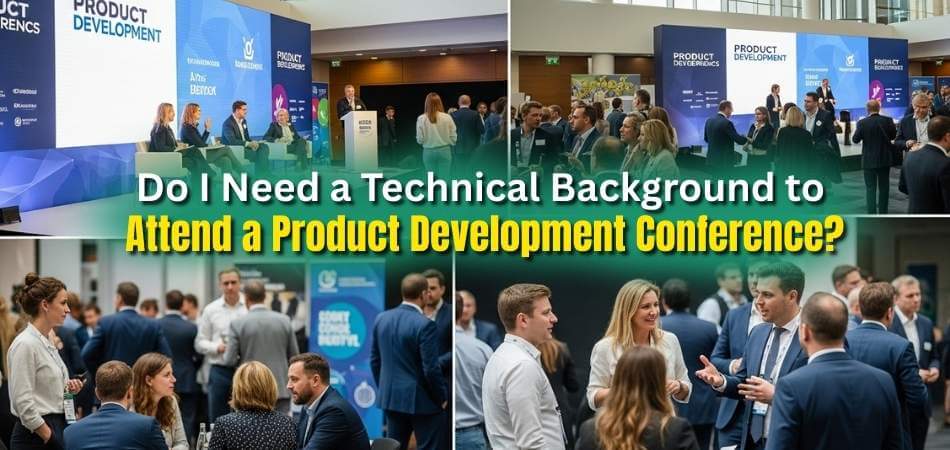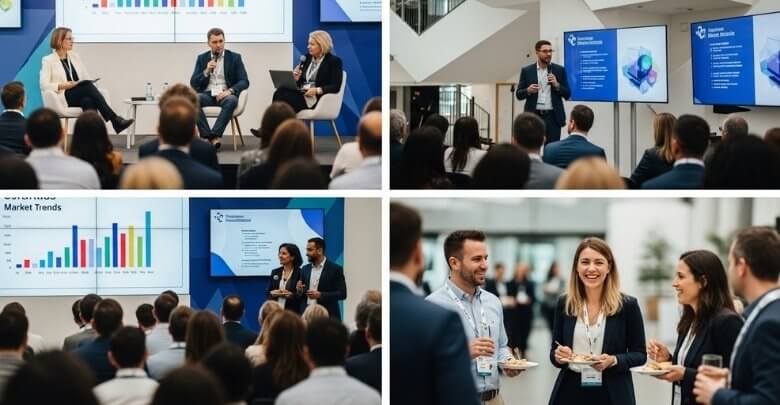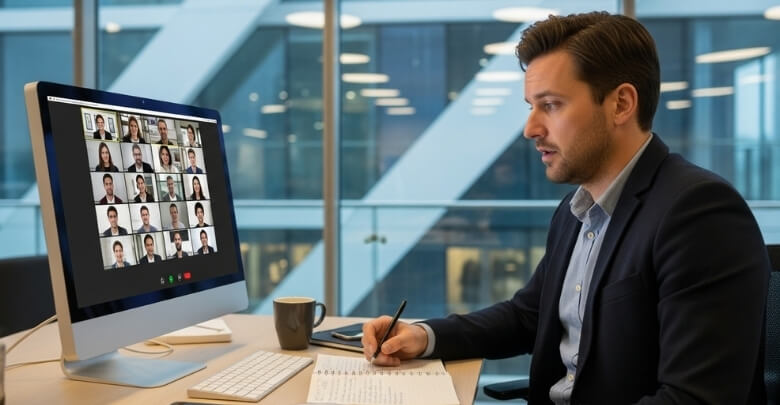Attending a product development conference is always an exciting experience. It is a place where people from different fields come together to share ideas and learn from each other. Many people often wonder about one thing before joining, and that thought is Do I need a technical background to attend a product development conference?
No, you don’t need a technical background to attend a product development conference. These events welcome participants from areas like design, marketing, sales, and management. The sessions are explained in ways that both technical and non-technical people can understand. Everyone gets the chance to learn how products are shaped, improved, and brought to life.
Are you curious about what is actually needed to join a product development conference? If yes, then keep reading this article because here you will find all the important details explained clearly.
Do I Need a Technical Background to Attend a Product Development Conference?
You don’t need a technical background to attend a product development conference. These events welcome people from many fields, including design, marketing, and management. Everyone gets to learn how products are shaped and improved. If you want to know exactly what you need before joining, check the details below.
Registration
The first and most important step is registering for the conference. Most events require you to buy a ticket online or fill out a simple form. Early registration often gives you a lower price and secures your spot before it sells out. Popular events, like upcoming conferences in USA, are good examples where registering early is important. Always check for confirmation emails so you know your registration is successful.
Basic Interest
You don’t need to be a product expert, but you should have a real interest in how products are developed. Curiosity about how ideas become real products will help you connect with the sessions. Even if some talks are technical, many speakers explain things in easy ways. Having this basic interest makes the entire experience meaningful and enjoyable.
Willingness to Learn
Attending a conference is a chance to take in fresh ideas, stories, and real company examples. You need to be open to learning, even if topics feel outside your comfort zone. It’s okay if you don’t understand everything at once; you’ll still pick up useful insights.
Networking Mindset
Conferences are not just about sitting and listening. They’re also about talking to people who share similar interests. Meeting experts, managers, or fellow attendees can give you new contacts and ideas for the future. Even a short, friendly conversation can lead to opportunities later on.
Note-taking Tools
Since a lot of information is shared in a short time, it helps to take notes. Bring a notebook, pen, or use a phone or tablet to write down key points. These notes will be useful when you review what you learned after the event. Having your own notes makes it easier to remember important details.
Comfortable Essentials
Product development conferences usually last many hours or even a full day. Wearing comfortable clothes and shoes will help you stay relaxed. Carrying water, snacks, and a power bank for your phone makes the day smoother. Small things like this let you focus on learning instead of worrying about comfort.
Who Usually Attends Product Development Conferences?
No matter the size or theme, product development conferences bring together many types of people. Some come to share their skills, while others come to learn or make connections. You may be curious to know exactly who attends these events, so let’s take a closer look.
Product Manager
Product managers are some of the most common attendees at these conferences. They focus on planning, building, and improving products. You’ll often find product managers at conferences learning from real-life case studies and sharing their own challenges. Attending gives them fresh ideas on market needs and user expectations. They also use the chance to meet others facing similar challenges.
Designers
Designers often join to learn about new design tools and creative methods. They play a big role in making products easy and attractive for users. By attending, they see how their work connects with development and business needs. They also get inspired by seeing different styles and approaches.
Marketers
Marketers come to understand how products are introduced to customers. They learn strategies to reach the right audience and build interest in new launches. Conferences give them a view of trends and consumer behavior. This helps them shape campaigns that match product goals.
Developers
Developers attend to learn about the technical side of product growth. They explore new tools, coding practices, and technologies that can improve products. Listening to case studies often gives them practical ideas they can use right away. They also enjoy networking with other technical experts.
Business Leaders
Company leaders and decision-makers attend to spot opportunities and partnerships. They look at trends, future demands, and possible investments. For them, conferences are also a space to share their vision and hear feedback. Their presence often shapes the direction of talks and discussions.
Students and Learners
Not everyone is already an expert. Many learners and early-career people join these events to gain knowledge. They get to see how different roles work together in product development. Attending helps them build connections that could support their future growth.
Types of Sessions Attendees Can Attend Without Technical Knowledge
Attending a product development conference does not always mean sitting in highly technical discussions. Many sessions are designed to be simple, practical, and easy for anyone to join. Continue reading to find out what kinds of sessions you can attend without technical expertise.
User Experience
User experience sessions focus on how people use and feel about a product. These talks show how design, layout, and ease of use affect customer happiness. You will learn simple methods to improve how products interact with users. It’s less about coding and more about understanding people.
Design Thinking
Sessions of design thinking teach innovative approaches to problem-solving. They encourage looking at issues from different angles and testing ideas in simple steps. These talks are hands-on and practical, which makes them easy to follow. They often include group activities that anyone can join.
Product Strategy
Product strategy sessions explain how companies plan the future of their products. You’ll hear about setting goals, understanding markets, and making smart decisions. These talks help you see the bigger picture of product development. They are important for anyone who wants to understand how products succeed.
Customer Feedback
Customer feedback sessions show how user opinions shape product growth. They highlight surveys, interviews, and reviews that help teams improve. You will learn why listening to customers is key for long-term success. These sessions are simple and very practical for all attendees.
Marketing Insights
Marketing sessions talk about how products reach the right people. They cover topics like social media, advertising, and product launches. You’ll get a clear idea of how marketing connects with product growth. These talks are useful for anyone interested in reaching customers.
Leadership Talks
Strong decision-making and team guidance are the main topics of leadership sessions. They often feature leaders sharing real stories and lessons. You’ll learn how teamwork, communication, and vision are important in product development. These talks are inspiring and easy to connect with.
Panel Discussions
Experts from various disciplines come together on stage for panel discussions. They share views, answer questions, and debate on key topics. This format is simple to follow because it feels like a conversation. It’s a great way to hear different opinions in one session.
What Can Attendees Gain From a Product Development Conference?
People can gain more than just knowledge by attending a conference on product development. These events are built to share ideas, inspire action, and create valuable links. Read on to find out what attendees can actually benefit from.
New Knowledge
Conferences bring experts who share their experience and tips. Attendees get the chance to hear real examples of how products succeed and fail. This knowledge helps people understand how to apply similar ideas in their own work. Learning from others makes the event truly valuable.
Practical Skills
Workshops and sessions often include simple exercises. These activities show how to solve problems and think differently. Attendees leave with skills they can practice right away. It’s a great way to learn by doing, not just listening. Here are some useful skills attendees can gain from a product development conference:
- Public speaking
- Teamwork
- Creative thinking
- Problem-solving
- Leadership
- Market research
- Networking
- Time management
Fresh Ideas
Listening to different speakers sparks creativity. Attendees discover new ways to design, market, or improve products. Even a single idea from a talk can lead to big changes later. These fresh ideas often become starting points for new projects.
Networking Opportunities
One of the biggest gains is meeting people. Attendees can connect with product managers, designers, marketers, and business leaders. These conversations can lead to friendships, partnerships, or career opportunities. Networking makes the experience more rewarding beyond the sessions.
Industry Trends
Conferences highlight what is happening in the product world right now. Attendees learn about trends, customer needs, and upcoming tools. This information keeps them updated and ready for the future. Knowing trends helps them make better decisions in their roles.
Motivation Boost
Hearing success stories and lessons from experts gives a strong push of motivation. Attendees leave with more energy and confidence to try new things. The positive environment encourages them to believe in their ideas. This boost often lasts long after the event.
How to Prepare if You Don’t Have a Technical Background?
Preparing for a product development conference without a technical background is not as hard as it may seem. You don’t need to know how to code or build software to make the most out of it. Here are some tips for attending with confidence and feeling prepared.
Know the Basics
Before attending, try to understand the simple terms used in product development. You can watch short videos or read quick guides about product design, user needs, or how teams work. This helps you follow the sessions better. You don’t have to know everything—just enough to stay in the loop.
Choose Right Sessions
Check the schedule and look for non-technical topics. Sessions on design, feedback, marketing, or product planning are easier to understand. It is also smart to choose the right product development conference so that the sessions match your goals. Picking the right sessions keeps you interested and comfortable.
Join Group Talks
Panel discussions, Q&A rounds, and casual talks are open to all. These don’t focus on deep technical topics. Instead, you get to hear ideas from many people with different roles. It’s a great way to learn without feeling left out.
Ask Simple Questions
If something is unclear, don’t hesitate to ask. Most speakers and attendees are happy to explain things in simple words. There’s no need to feel shy—everyone is there to learn. Even basic questions can start great conversations.
Take Easy Notes
Write down things that stand out or make sense to you. These can be simple ideas, tips, or even new terms to look up later. Your notes don’t have to be perfect. They just help you remember what you found interesting.
Talk to People
Conferences are perfect for meeting new people. You can chat during breaks or at meetups, even if you don’t know the tech stuff. Just being curious and friendly is enough. Many others there will not have a technical background either.
Keep Learning After
Once the event is over, you can go back to your notes or watch session recordings. This helps you understand things better at your own pace. It’s also a good time to look up terms or tools you heard about. Learning continues even after the event ends.
Next Step After a Product Development Conference
Attending a product development conference is only the beginning of the learning process. The real value comes from what you do once the event is over and how you use the knowledge gained. If you are wondering about the next steps, check below.
Review Notes
Go through the notes you wrote during the sessions. Highlight the most useful points that you want to keep in mind. Reviewing helps you remember details you may otherwise forget. It’s a simple way to make the conference lessons last.
Share Learnings
Talk about what you learned with your team, friends, or colleagues. Sharing ideas makes the knowledge stronger and clearer. It can also spark new discussions that you didn’t think about before. Others might add value to the points you bring up.
Organize Contacts
Conferences are great for meeting new people, but the real step is keeping in touch. Save business cards, connect on social media, or send a quick thank-you message. Organizing contacts early ensures you don’t lose valuable connections. These links may help in the future.
Apply Ideas
Choose a few ideas from the conference that you can try in your own work or projects. Start small and see what works. Applying ideas quickly keeps the excitement alive. It also turns learning into real results.
Follow Resources
Many conferences provide slides, recordings, or reading materials after the event. Make sure to check these resources for anything you may have missed. They often contain extra details that were not fully covered in the sessions. This keeps your learning going beyond the event.
Plan Ahead
Think about how this conference fits into your bigger goals. Decide what you want to learn more about next time. Planning ahead helps you pick future conferences or workshops that will build on what you just gained. It keeps your growth on track.
Commonly Asked Questions
Many people, particularly those without a technical background, may have questions when attending a product development conference. To make things simple, here are some frequently asked questions and clear answers that cover extra details not already explained above.
Can Someone From a Creative Field Benefit From Attending?
Yes, people from creative fields can gain a lot at product development conferences. Topics like design thinking, user experience, and customer research are often discussed in simple terms. These sessions help creative professionals understand how their ideas fit into product growth. Attending can even inspire fresh designs or better creative strategies.
How Do Conferences Support Networking for Beginners?
Conferences create networking spaces like coffee breaks, roundtable talks, or social events. Beginners can join these without pressure and meet others in a casual way. Even a short conversation can lead to valuable connections. These opportunities are designed to be friendly and open to all.
Do Conferences Offer Certification or Proof of Participation?
Some conferences provide certificates or digital badges after attendance. These can be useful to showcase on resumes or online profiles. While not every event offers them, many professional-level conferences do. It’s always good to check beforehand if this is important to you.
How Do Product Development Conferences Differ From Trade Shows?
Product development conferences focus on learning, sharing, and professional growth, while trade shows mainly highlight products for selling or promoting. At conferences, you’ll find workshops, keynotes, and discussions on ideas. Trade shows lean more toward showcasing items and attracting buyers. Both are valuable but serve different goals.
What Types of Workshops Are Available for Beginners?
Many workshops focus on brainstorming, design methods, or product planning, which don’t require technical skills. These activities are made simple so anyone can join. Beginners can practice creative thinking, teamwork, and customer understanding. Such workshops make the conference interactive and easy to enjoy.
What Are the Common Mistakes Attendees Should Avoid?
Some attendees try to attend every single session, which can be overwhelming. Others may forget to take notes or skip networking opportunities. Another mistake is not reviewing the schedule beforehand. Avoiding these errors ensures you leave the conference with clear value and connections.
Which Tools Help With Note-Taking During Conferences?
Attendees often use notebooks, phones, or tablets for note-taking. Apps like Evernote or Google Keep make it easy to organize thoughts. Others prefer simple handwritten notes. The key is to capture main ideas in a way you can review and apply later.
Conclusion
A product development conference can be a motivating and fulfilling event to attend. You meet people from different roles, hear fresh ideas, and take away lessons that can be applied in real life. These events are built to create lasting impact.
So, do I Need a Technical Background to Attend a Product Development Conference? The answer is no. What really matters is your interest, curiosity, and readiness to learn. The sessions are designed in a way that welcomes people from marketing, design, leadership, and other non-technical fields.
If you are planning to join, go with an open mind and be willing to take part in discussions. The knowledge, skills, and connections you gain will stay with you long after the conference ends.








